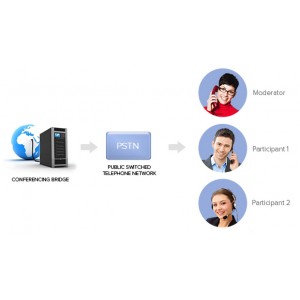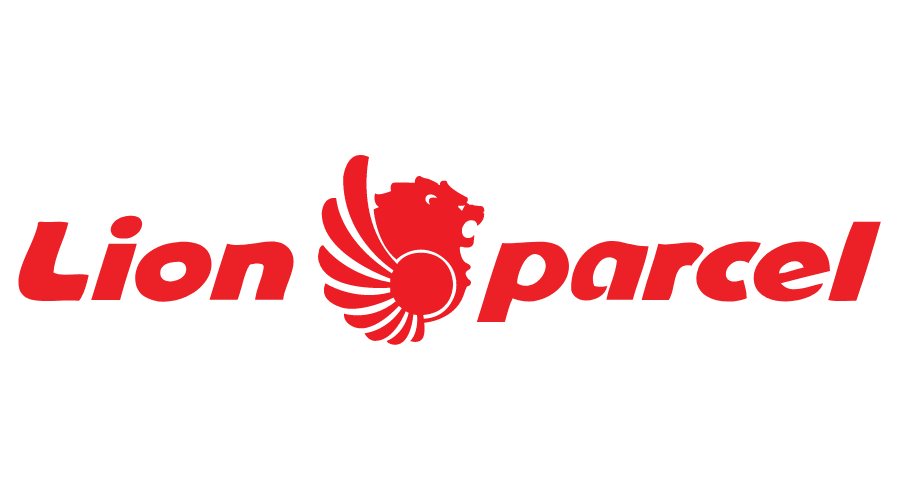Kategori
- SOLUTIONS
- OMNI CONTACT CENTER
- HOSTED | CLOUD PBX
- SIP TRUNKING
- SOLUSI HEMAT TELEPON
- IP PBX AND APPLIANCES
- IP PHONE
- CORDLESS IP PHONE
- WIFI IP PHONE
- VIDEO IP PHONE
- GIGABIT IP PHONE
- VIDEO CONFERENCE
- CONFERENCE CAMERA
- INTERACTIVE BOARD
- CONFERENCE PHONE
- CONFERENCE SYSTEM
- HEADSET
- VOIP GATEWAY
- ISDN E1 GW | CONVERT
- GSM GATEWAY
- IP INTERCOM
- IP PAGING
- NETWORK SWITCH
- WI-TEK
- Unmanaged PoE Switch
- Unmanaged ETH Switch
- Managed PoE Switch
- Reverse PoE Switch
- Passive PoE Switch
- No-Break PoE Switch
- Auto-Sense PoE Switch
- Cloud Mesh AP
- Cloud Mesh WiFi 6 Router
- Cloud L2 Managed PoE Switch
- Cloud L2 Managed Fiber Aggregation Switch
- Cloud Platform
- Mobile Cloud APP
- Cloud Mesh WiFi 6 Router
- Cloud L2 Managed PoE Switch
- Cloud L2 Managed Fiber Aggregation Switch
- Cloud Easy Smart Managed PoE Switch
- 4G LTE Outdoor CPE
- 4G LTE Indoor Wi-Fi Router
- UPS No-Break Solar PoE Switch
- Smart IoT Box
- Smart PoE Tech for WISP
- Outdoor Waterproof PoE Switch
- PoE Switch for CCTV
- Hi-PoE Long-Range PoE Switch for CCTV
- Fiber PoE Switch
- Full Gigabit PoE Switch
- SNMP Managed Gigabit PoE Switch
- Gigabit Ethernet Switch
- 2.5G/10G SWITCH
- Easy Smart Ethernet Switch
- Easy Smart PoE Switch
- Hardened PoE Switch
- Industrial Cloud Switch
- Superic Industrial Switch
- Mixed Industrial PoE Switch
- Boost Voltage Industrial PoE Switch
- 90W PoE Switch/PoE Injector/PoE Splitter
- Waterproof Industrial PoE Extender/PoE Inejctor/PoE Splitter
- PoE Injector,Splitter and Extender
- Gigabit SFP Fiber module
- Wireless Long-Range Transmit for CCTV IP Camera
- Fiber Optical Transceiver
- Indoor and Outdoor Cloud AP
- Cloud AP Controller/Enterprise Load Balance Gateway
- 3-10KM Long-Range Outdoor CPE for WISP
- 10-30KM Long-Range Outdoor CPE for WISP
- 24V Reverse PoE Switch
- SNMP Managed Gigabit Reverse PoE Switch
- Fiber Ethernet Switch
- SNMP Managed Gigabit Ethernet Switch
- GPON ONU PoE Switch
- HIMAX
- PROCET
- INDUSTRIAL POE Switch
- POE SWITCH
- GIGABIT ETH Switch
- OUTDOOR POE SWITCH
- HRUI
- WI-TEK
- WIRELESS AP
- CCTV | SURVEILLANCE
- SERVERS
- FIBER OPTIC & 3 PLAY
- ROUTER
- IP CAMERA
- SERVICES
- PA SYSTEM

PT. DIVATEL PRATAMA
Menara Kuningan 6th Floor,
Jl. H.R. Rasuna Said Blok X-7 Kav.5,
Jakarta Selatan 12940
Telp.: 021-30022778 (Hunting)
0852 8940 4589 (Mobile/WA)
Email: [email protected]
 User Online
User Online
Today Accessed: 6209
Total Accessed: 518450
Your IP: 216.73.216.142, 216.73.216.142
On-premises or Cloud PBX? 5 Questions to Determine the Best Fit
written by at 2020-07-26
As the switch-off of ISDN and PSTN, the migration to an IP-based business phone system has become an inevitable trend. Companies are then confronted with the choice between the on-premises or cloud-based deployment. Well, the debate has been around for years. Despite all the marketing hype, there is no ultimately better option between them. There are fundamental differences as well as pros and cons to each option and the considerations will differ for every business.
To help you make an informed decision, we will look at 5 key questions that you should ask when choosing between an on-premises and cloud PBX system. Before we get started, let’s have a quick look at these 2 deployments.
On-premises PBX
With an on-premises voice solution, the hardware is installed and runs on-site at your office or data center. You purchase and own the phone system hardware, networking, server equipment and more, and your IT staff take care of all the updates and maintenance regarding the system. The calls are routed through traditional phone lines (ISDN, PSTN, GSM) as well as SIP trunking.
Cloud PBX
A cloud-based hosted PBX system is delivered entirely over the Internet and managed completely off-site by a service provider. The only equipment you need to purchase are desk phones. You have some control over the system while the hosted service provider supplies the voice service and performs all updates and maintenance. Most hosted voice solutions are charged at a subscription basis with minute packages or by minutes.
Question #1 What’s your budget and preferred pricing model?
One of the big differences between on-premises and cloud PBX is the upfront cost.
Cloud PBX usually falls under an OpEx model with more affordable monthly or annual fees, low initial equipment cost and setup cost, which means less money to get started. There is no maintenance fee involved. Service providers tend to offer several subscription plans with different licenses, features and minute packages.
As for the on-premises option, you need to pay fully upfront for the hardware and interface cards (if needed) to ensure the complete ownership of the system. However, it also saves you from the risk of fee increases and means lower monthly cost after expenses are covered.
It’s often preferable for large enterprises to buy their own equipment upfront, whereas it’s favored by smaller businesses to pay on a subscription basis.
Question #2 Do you prefer full control of your business phone system?
When you house the PBX system on-site, you will have full control over business communications. It may be a better fit for companies with complex and dynamic communication needs since they can modify it as needed. Also, if the Internet service goes down, they can still rely on traditional phone lines to ensure minimal service disruption.
If you opt for a cloud-based solution, the responsibility of running the PBX is down to the third-party, which can be a huge advantage to small businesses with fewer resources. The potential risk is that the service provider may fail to deliver on its promised quality of service.
In short, it’s a choice between control and responsibility. More control over the system equals more responsibility for maintaining and managing it.
Question #3 Do you foresee significant changes in the staffing level?
In terms of system expansion, a cloud-based hosted solution is typically more scalable than the on-premises one. Cloud PBX provides a more flexible solution for businesses with staff growth or reduction during the lifetime of the system. The increase and decrease of phone extensions can be made immediately and businesses only pay for what they need.
If you are a seasonal business with fluctuating communications needs or experiencing rapid growth, a hosted model might work better for you. If your business is fairly stable and does not have significant changes in the number of employees in the foreseeable future, it’s totally okay to opt for the on-premises deployment.
Question #4 Do you have multiple offices or remote workers?
Cloud PBX system is capable of unifying the headquarter with remote offices and a handful of teleworkers by consolidating every employee’s phone extension under one system.
As for on-premises PBX, it certainly has the ability to handle remote users and multiple offices, but comparing to the cloud-based solution, it may be a little more complex and expensive.
As unified communications become the new norm, now many on-premises and cloud solution can both provide mobile and desktop softphones as well as comprehensive UC feature set including VoIP, conferencing, collaboration, unified messaging, and more. Remember to take it into consideration if your business operates across multiple locations and has remote workers as it will bring great convenience and efficiency improvements.
Question #5 Are your IT staff capable of maintaining the system?
With the on-premises deployment, the responsibility of installation, upgrades, and maintenance all falls on the shoulders of your IT staff. So before purchasing an on-premises PBX, businesses should evaluate their IT strength. Do you have technicians with the required expertise to handle all those work? Besides, some businesses may have IT resources that are fully capable of managing their business phone system but would rather prioritize on more important and revenue-generating projects.
A cloud-based hosted phone system is up to the service provider to manage the system, which would be beneficial for small businesses and start-ups lacking in technical expertise or resources. There’s also no need to worry about any network issues.
Final Thoughts
Both on-premises and cloud PBX are effective and reliable business phone systems that offer different benefits, whereas each system may be a better option for specific communications requirements. When it comes to the choice between them, there are many things to factor in, such as the size of your business, the number of remote offices, the level of your technical expertise, your tolerance for being dependent on service providers, and more.
Make a thorough evaluation before purchasing. We have worked out a Small Business Phone System Buyer’s Guide to help you find the right VoIP business phone system that will save you money, time, and efforts.
Comments

says :
2021-03-12 12:00:46Cloud PBX is a smarter version of traditional phone system it is very useful to any company in place of traditional phone system and also cloud pbx allows multiple calls and your website explain about pbx calls clearly it is very useful to users
<a href="https://www.vitelglobal.com/"> Best Business Phone Service provider in texas </a>
Leave a comment
 021-30022778
021-30022778
![]() SALES & MARKETING :
SALES & MARKETING :
Indra Ilham - Ext. 111
John - Ext. 110
DIVATEL - 0851-7306-0800
Ismed S. - 0852-8940-4589
Dipa A. - 0821-1063-2366
Indra Ilham - 0818-188-818-59
John - 0812-1070-3999
![]() INTERACTIVE DISPLAY :
INTERACTIVE DISPLAY :
Dharma - 0878-7753-7902
Carlo - 0878-8796-8114
![]() EMAIL :
EMAIL :
Keranjang Belanja
Diskon
-

Escene ES290PN
Rp 866.000 Rp 826.000
Produk baru
Dinstar UC200 Pro - IP PBX
- UC200 Pro is a powerful and reliable IP PBX designed to meet the...
Lebih lanjut Distributor Dinstar C60U-W IP Phone WiFi Murah Berkualitas Promo 2025
- Distributor Dinstar C60U-W IP Phone WiFi Murah Berkualitas Promo 2025...
Lebih lanjut Milesight MS-C5321-FPE — AI Multi-Sensor Multi-Directional Camera 4×5MP
- Dapatkan pengawasan 360° menyeluruh dengan Milesight MS-C5321-FPE,...
Lebih lanjut
















































































